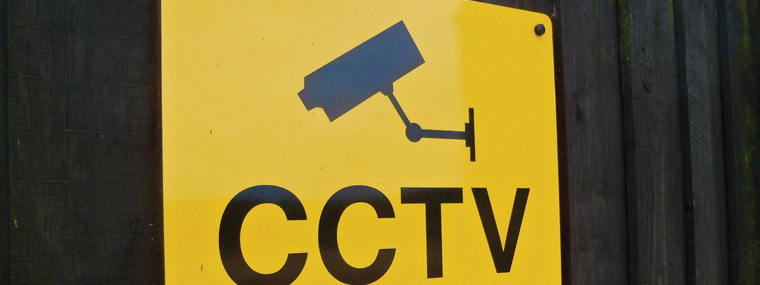
Common Community Security Liabilities
By Brie Shouppe / Published November 2019

Video surveillance at an entrance or around a community is easy to find, and visitor verification methods for gated communities continue to enhance those systems. No matter the system, any community employing or searching for a security method should have some understanding of the liabilities. Although each situation is certainly unique, there are a few guidelines and rulings for a community to be aware of in relation to common systems in order to stay prepared for any incident that may arise.
When a community is interested in installing a camera system at an entrance or amenity, most will also consider additional signage. Not only do signs enhance a system as a deterrent, but in some cases, adequate signage is legally necessary. When an association is trying to determine if signs need to be posted, they first must consider if the area that will be monitored is public. Video is generally allowed in public places, and signs are not always required because there is not an expectation of privacy. However, if a level of privacy is expected, video surveillance may not be allowed, or signs may be needed when a system is used. In any instance, it is best to consult with an experienced vendor and/or attorney.
Many camera systems, like active video surveillance solutions, also include audio recordings. Any time audio recordings will be made, special care needs to be taken because of state-by-state “wiretapping” laws that may restrict the ability to make audio recordings. When signs are posted in a monitored area, they should include language specifically stating that audio is being recorded along with video. However, just like standard video surveillance, audio recording is sometimes allowed in public places if there is no expectation of privacy. The laws relating to audio recordings are complex, so it is always best to work with a knowledgeable provider and an attorney who have handled many similar scenarios.
Once a community installs a video surveillance system, it is important that the association know some of the legal requirements they may have to abide by. For instance, if the property manager and/or community become aware of an incident that happened in a monitored area, they may be legally required to retain footage of that incident. Of course, it is best to speak with the association’s attorney to confirm when a record must be retained since specific requirements for incident retention may be dependent on the nature of each individual situation.
Communities using video surveillance should also know the amount of storage their video recording device is able to hold. In most cases, a network video recorder or digital video recorder should have about 30 days of storage ability before old footage is replaced with new. It is generally expected that an association is able to obtain the footage needed in that amount of time. However, if a community uses a security provider for additional monitoring of video and for video retrieval services, the association should confirm if footage is also stored offsite and for how long. Additionally, an association using a vendor to access the watermarked video must request any clips within a reasonable amount of time. For example, requesting video (for the first time) of a situation that happened over a year ago is most likely not a reasonable expectation.
Another common system that communities, residents, and visitors should legally understand is driver’s license scanning. Driver’s license scanning is commonly used for visitor verification at gated community entrances. Many associations select this type of system for the enhancements that allow automatic verification for permitted guests, as well as the security benefits of having a record of each driver entering the community. On the other hand, visitors and other communities that are not familiar with the system sometimes see it as an invasion of privacy. That is why some states have laws in place to determine how a driver’s license can be scanned.
Florida, for example, has Statute 322.143 that prohibits “swiping” of driver’s licenses. Swiping is defined as “the act of passing a driver license or identification card through a device that is capable of deciphering, in an electronically readable format, the information electronically encoded in a magnetic strip or bar code on the driver license or identification card.” Security providers in compliance with this law use scanning, instead of swiping, to legally capture the front of an ID without taking information from the magnetic strip and violating the law. Communities should only employ security vendors that have the experience and knowledge to comply with these regulations.
The law as it relates to a community’s security system is not simple. While there are basic principles, rules, and expectations that associations and property managers should be aware of, it is always encouraged to consult experts when inquiring about and installing a new solution. This includes an experienced security vendor as well as an attorney familiar with the legal requirements for communities. When all parties are consulted accordingly, the association and vendors can feel confident in their agreement and what is expected of one another.
Please note, the author is not an attorney. An expert was consulted for verification of the items discussed. If you have security questions or concerns, please email ask@enverasystems.com.
Scott O’Connor
Brie Shouppe, Sr. Business Development Consultant, Envera Systems
Brie Shouppe is the Sr. Business Development Consultant for Envera Systems. She works closely with the sales and marketing departments to provide best-in-class service to the communities that Envera works with. Envera Systems is an all-inclusive security provider that focuses on the unique needs of communities through technology-based solutions. Using Virtual Guards located at Envera’s Central Station, Envera is able to provide Next Generation protection by verifying visitors, monitoring video, managing community databases, and more. Contact info: (855) 380-1274 or www.EnveraSystems.com.




